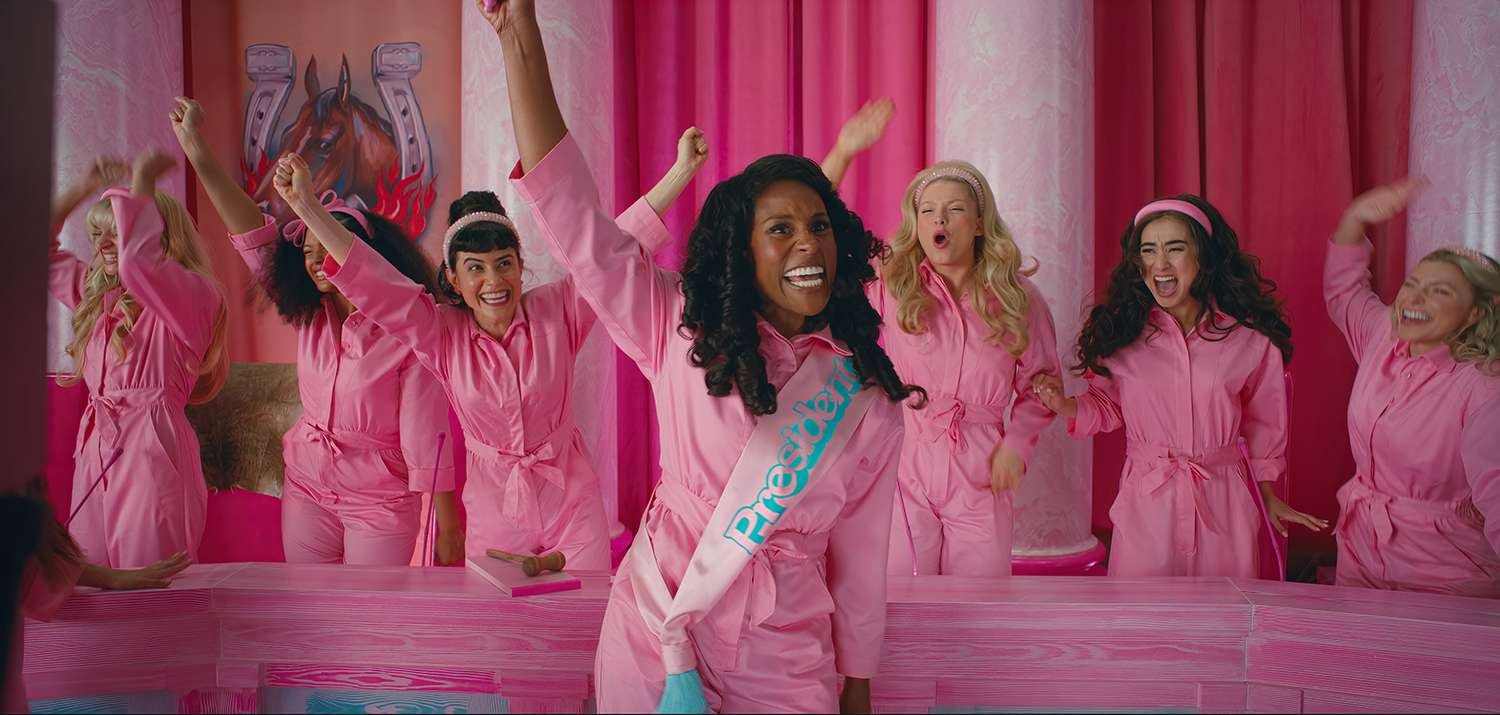Life in Plastic, Is It Fantastic?
For a film that's created expectations as high as the Machu Picchu, Barbie's cinematographic personality underwhelms, but the script overcompensates.
At the cinema, wearing the most amorphous, ankle-length, oversized, black column dress under a large, grey, Japanese-inspired raincoat (by Frau Lamb) that folds and drapes all around, I am probably one of the ten not dressed in pink.
In the popcorn line, a group of young females—all clad in rosé—fail to mask the attention they give.
Did he not get the memo?
The experience of going to the movies to watch Barbie, in itself, brought to perspective what was sublimated into Greta Gerwig's (director and co-writer, along with her partner, Noah Baumbach) long-awaited film: it takes advantage of the psychological projections that bind us to Barbie (the product and cultural object) to engage, disarm and place the viewer behind the rose-tinted walls of a glass house—or, for that matter, back inside the life-size pink store box waiting in the lobby of the movie theatre.
With Baudrillard-esque sensibility, Gerwig’s script plays with tone and atmosphere to establish a rich cinematic cultural system of signs and symbols that serves as the perfect petri-dish for Barbie (and all characters) to transgress from a mere object and into fully-fleshed, three-dimensional, purposeful characters that, seemingly unbeknown to the audience are nothing but their reflection.
Smartly enough, Gerwig addresses all controversies surrounding Barbie from the get-go, clearing out the space for any potential argument against its self-awareness. Instead, the film focuses on themes of identity politics that subversively re-direct the finger toward the systematic forces that have gotten us here in the first place.
By the time the second act comes to a close, woefully, these themes do end up feeling like a hodgepodge of intersectionalities that seem to be more interested in poking than in pleasing the audience—or actually maintaining some sort of coherency to the experience.
Convoluted is a word that comes to mind.
Formally, the film does lack a bit of lustre.
A caesura of sterile colouring, shallow tonal range, and monotonous lighting prevented me from reaching that Technicolor nirvana incited by the film’s inundating marketing campaign that has generated waves (and expectations) as high as the Machu Picchu.
My guess is that with a subject whose thesis of existence has always revolved around its artificiality and appearance, Gerwig chose to plant her seed much, much deeper.
““There really was this kind of open, free road that we could keep building. It’s like you’re playing with dolls when you’re writing and, of course, there was this extra layer in that they were dolls.””
In Barbie World, everyone shares a name; individuality is only affirmed through societal functions.One thing the film establishes seamlessly and with incredible poise is a perfectly curated sense of ambiguous existentialism.
Manipulating Barbie’s vessel-like nature, the script awakens the classic questions: who am I, and what is my place here? More specifically, it leaves us wondering if are we laughing with or at Barbie. Is Barbie laughing at us?
Are we Barbie, or is it the other way around?
It is through this dissection of identity, instigating search, and satirical spite that the film encapsulates the current cultural moment overwhelmed by ambivalence, social deconstruction, and hyper-surveillance—not different from the one proposed in Foucault’s Panopticon—that crystallizes every time the algorithm throws an ad for something you mentioned in conversation with a friend; when you finally sign up to a dating app and start with a full profile with pics, rendering you exposed (online and in person), vulnerable to the perceptions and judgements of others around. Or, more fittingly, like when you decide to wear all pink to go watch the Barbie movie and everyone on the train is able to read right through your ensemble, leaving you, in the words of Baudrillard, like “a pure object with no inward reality,” just like Barbie standing behind the plastic wrap, waiting for a buyer, and unable to articulate anything but “the signs of its content.“
““…the notion of a world no longer given but instead produced—mastered, manipulated, inventoried, controlled: a world, in short, that has to be constructed.” ”




